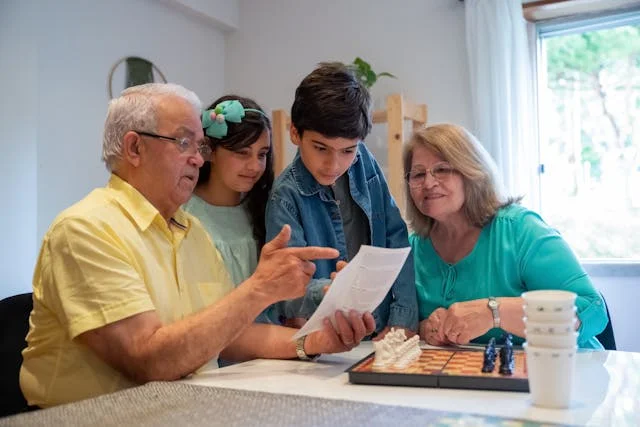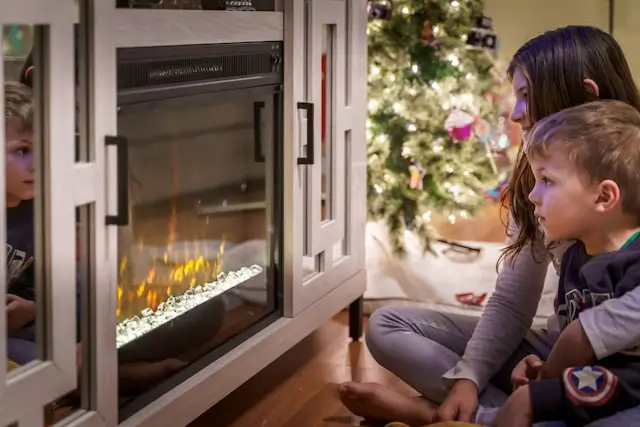10 Holiday Tips Every Dementia Caregiver Should Know
Caring for someone with dementia is a full-time job, and the holidays can add even more challenges. Between family gatherings, holiday traditions, and everyday caregiving responsibilities, it’s easy to feel overwhelmed. But with the right preparation, you can make the season enjoyable for both yourself and your loved one.
If you’re a dementia caregiver, holidays can be less stressful by planning ahead, simplifying activities, and keeping your loved one’s needs in focus.
1. Set Realistic Expectations
It’s okay if the holidays don’t look the same as they used to. You might not be able to host a large dinner or attend every event, and that’s perfectly fine. Focus on what truly matters, like spending quality time with your loved one. You can explain to others that things need to be simpler this year because your energy is needed elsewhere.
2. Plan Ahead
The more you plan, the smoother things will go. Think about the challenges your loved one might face, like being in an unfamiliar place or dealing with too many people. Have a schedule for meals, activities, and rest breaks. Also, share this plan with family members, so everyone knows what to expect.
3. Simplify Traditions
You don’t need to keep up with every tradition. Choose a few meaningful ones that are easy to manage. For example, if decorating the entire house feels like too much, you could focus on just one area, like the living room. If cooking is stressful, consider store-bought items or a potluck.
4. Create a Quiet Space
Large gatherings and loud environments can overwhelm someone with dementia. Set up a quiet area where your loved one can relax if things get too much. This could be a spare bedroom or a quiet corner in the house. Make sure it’s a place where they feel safe and comfortable.
5. Stick to a Routine
People with dementia often find comfort in routines. Try to keep daily schedules as consistent as possible, even during the holidays. Stick to regular meal times, bedtime, and activities they enjoy. Too many changes in one day can cause confusion or anxiety.
6. Involve Them in Simple Activities

Your loved one might enjoy helping with small, simple tasks. They could help set the table, fold napkins, or hang lightweight ornaments on the tree. These activities can make them feel included and keep their mind engaged. Remember to choose tasks that match their current abilities.
7. Be Mindful of Their Diet
During the holidays, it’s easy for anyone to overindulge, but dementia patients may have specific dietary needs or restrictions. Avoid offering foods that could upset their stomach or confuse them, like overly rich dishes or items they’re unfamiliar with. Also, make sure they stay hydrated throughout the day.
8. Watch for Signs of Stress or Fatigue

The holidays can be tiring for everyone, but especially for someone with dementia. Keep an eye out for signs of stress, like restlessness, irritability, or confusion. If you notice these signs, it might be time to take a break or end the day’s activities early.
9. Communicate with Family and Friends
It’s important to let others know how they can support you. Be clear about your loved one’s needs and limitations. For instance, you could ask family members to keep conversations calm and avoid loud music. You can also explain why your loved one might act differently than they did in previous years.
10. Take Care of Yourself

Lastly, don’t forget about your own well-being. Caregiving can be exhausting, and you deserve to enjoy the holidays too. Take breaks when you need them, ask for help, and don’t hesitate to say no to activities that feel like too much. Remember, a well-rested caregiver is better able to care for their loved one.
FAQs
1. How do I manage gift-giving for someone with dementia?
When choosing gifts for someone with dementia, focus on items that bring comfort, familiarity, or stimulation. Consider things like a cozy blanket, a favorite scent, photo albums with labeled pictures, or puzzles with large pieces. Avoid gifts that might be confusing or require too much effort to use, like gadgets with complex instructions.
2. Can I still travel with my loved one during the holidays?
Traveling is possible but requires careful planning. Choose destinations that are close to home or familiar to your loved one. Keep travel times short and bring items that provide comfort, like their favorite snacks or a familiar pillow. Notify airlines or hotels about your loved one’s needs ahead of time to make the trip smoother.
3. What should I do if my loved one doesn’t recognize family members at gatherings?
It’s common for dementia patients to forget people, even close family members. Prepare everyone in advance and encourage them to introduce themselves when greeting your loved one. Focus on creating a warm and friendly environment rather than forcing memory recall, which can cause stress.
4. How can I keep my loved one entertained during family events?
Plan simple activities that your loved one can enjoy without feeling overwhelmed. This could be singing holiday songs, looking through old photo albums, or watching classic holiday movies together. Keep activities short and engaging, and be prepared to switch to something else if they lose interest.
5. How do I handle difficult emotions during the holidays?
Holidays can bring up feelings of loss or sadness, especially if your loved one’s condition has worsened. Allow yourself to feel these emotions and seek support from a friend, counselor, or support group. Remember that it’s okay to mourn changes while still finding moments of joy in the present.
6. Should I involve my loved one in spiritual or religious traditions?
Yes, if they find comfort in such activities. However, simplify things to match their abilities. For example, if attending a service is too overwhelming, you could play their favorite hymns at home or set up a small, quiet space for reflection or prayer.
7. How do I handle nighttime disruptions during the holidays?
Nighttime disruptions are common for dementia patients. Stick to a consistent evening routine and avoid over-stimulation close to bedtime. If you’re staying somewhere new, bring items from home, like their pillow or nightlight, to help them feel secure. Let family members know in advance if you might need to step away during the night to provide care.
Key Points to Remember
- Set realistic expectations for the holidays.
- Plan ahead and share the schedule with others.
- Simplify traditions to make things manageable.
- Create a quiet space for your loved one.
- Stick to routines to provide comfort.
- Involve your loved one in simple, meaningful activities.
- Be mindful of their diet and hydration.
- Watch for signs of stress or fatigue.
- Communicate openly with family and friends.
- Prioritize your own health and well-being.
Thank you for reading! I hope these tips help you navigate the holiday season more easily. If you have any questions, feel free to comment below.

